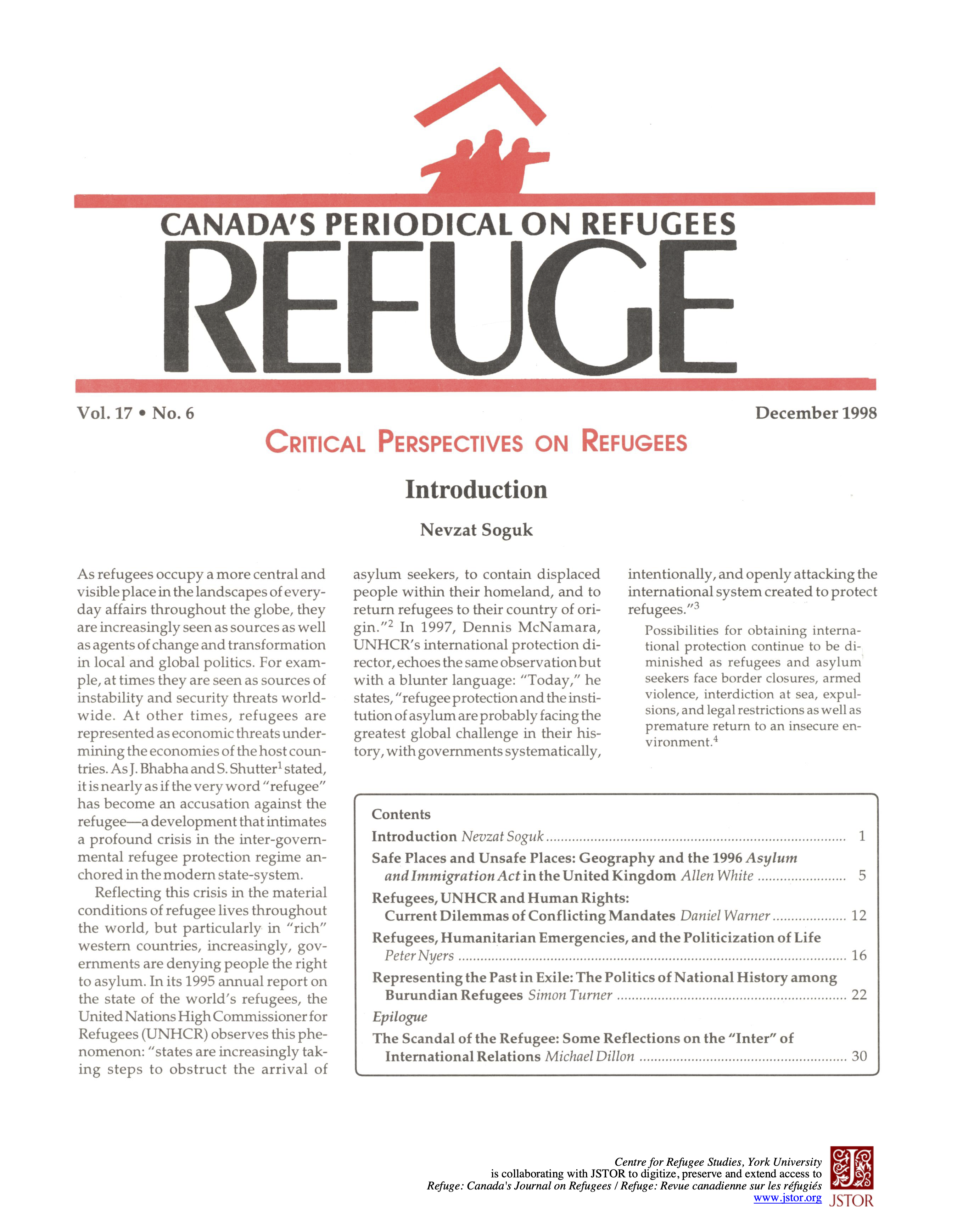Refugees, Humanitarian Emergencies, and the Politicization of Life
DOI:
https://doi.org/10.25071/1920-7336.21996Keywords:
UNHCR, humanitarianism, refugees, politics, sovereignty, categorization, bare lifeAbstract
The concept of "humanitarian emergency" has come to be largely synonymous with contemporary refugee situations. The purpose of this paper is to critically explore the connections between the categorization of refugees as an "emergency" situation and the way in which "humanitarianism" has come to constitute a hegemonic discourse in which academics, policy-makers, international organizations, and refugee advocates must formulate their arguments and actions. Humanitarianism is often portrayed as posing a challenge to the codes and practices of state sovereignty because it is a form of action which is purportedly motivated by a sense of obligation and responsibility to "humanity" that goes beyond the responsibility one feels for fellow citizens. This paper analyzes a series of recent UNHCR representations of refugees to suggest that humanitarianism must instead be understood as an inherently political concept. Drawing upon the writings Giorgio Agamben, this paper demonstrates how humanitarianism is always already (bio)political to the extent that it relies on a conception of "bare human life" which is consistent with the practices of state sovereignty. From this perspective, framing the refugee phenomenon as a "humanitarian emergency" works to sustain constitutive practices which stabilize and reproduce statist resolutions to questions of political identity, community, and world order.Metrics
Downloads
Published
How to Cite
Issue
Section
License
Copyright (c) 1998 Peter Nyers

This work is licensed under a Creative Commons Attribution-NonCommercial 4.0 International License.
Refuge authors retain the copyright over their work, and license it to the general public under the Creative Commons Attribution-Non Commercial License International (CC BY-NC 4.0). This license allows for non-commercial use, reproduction and adaption of the material in any medium or format, with proper attribution. For general information on Creative Commons licences, visit the Creative Commons site. For the CC BY-NC 4.0 license, review the human readable summary.







